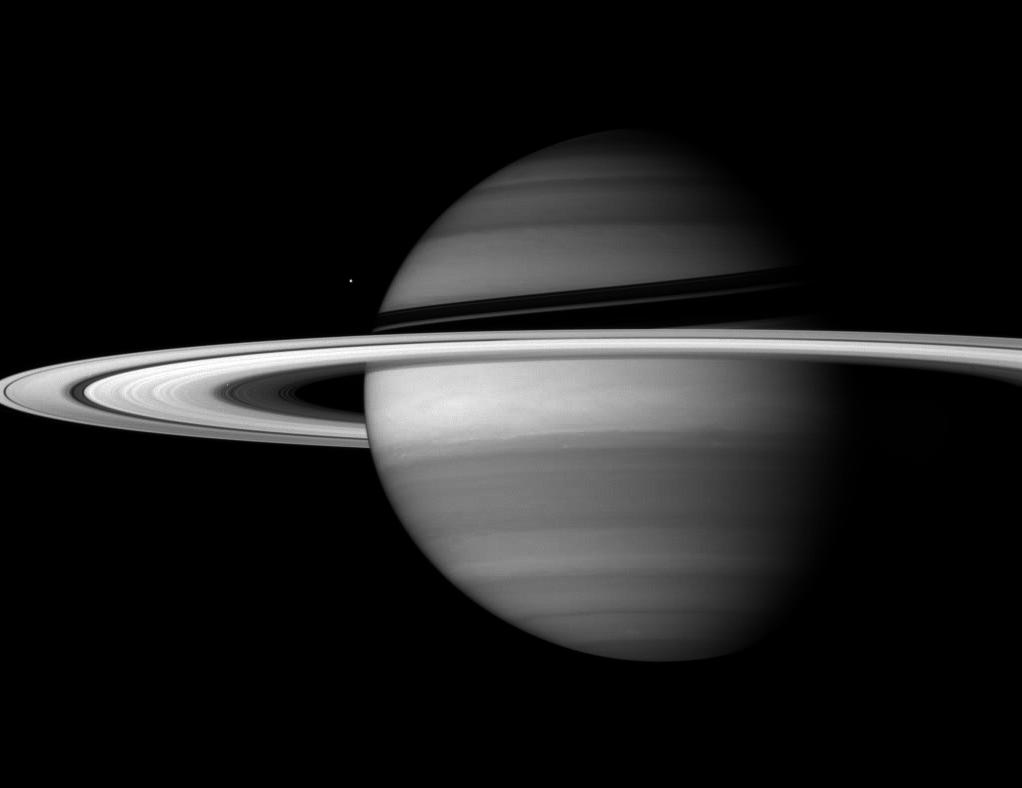Ice Spread Thin

| PIA Number | PIA09757 |
|---|---|
| Language |
|
Saturn's incredible rings dwarf its moons in sheer scale. But all of their material, if compacted into a single body, would make a moon smaller than Enceladus, seen here next to the planet's banded globe.
Enceladus is 505 kilometers (314 miles) across; the rings would make a moon roughly the size of Mimas (397 kilometers, or 247 miles across, not pictured). Their thinness, just tens of meters (several feet) according to recent Cassini observations, is the key to their incredible scale.
This view looks toward the sunlit side of the rings from about 5 degrees below the ringplane.
The image was taken with the Cassini spacecraft wide-angle camera on Sept. 18, 2007, using a spectral filter sensitive to wavelengths of infrared light centered at 728 nanometers. The view was obtained at a distance of approximately 3.4 million kilometers (2.1 million miles) from Saturn and at a sun-Saturn-spacecraft, or phase, angle of 49 degrees. Image scale is 201 kilometers (125 miles) per pixel.
The Cassini-Huygens mission is a cooperative project of NASA, the European Space Agency and the Italian Space Agency. The Jet Propulsion Laboratory, a division of the California Institute of Technology in Pasadena, manages the mission for NASA's Science Mission Directorate, Washington, D.C. The Cassini orbiter and its two onboard cameras were designed, developed and assembled at JPL. The imaging operations center is based at the Space Science Institute in Boulder, Colo.
For more information about the Cassini-Huygens mission visit http://saturn.jpl.nasa.gov . The Cassini imaging team homepage is at http://ciclops.org .
Credit: NASA/JPL/Space Science Institute
